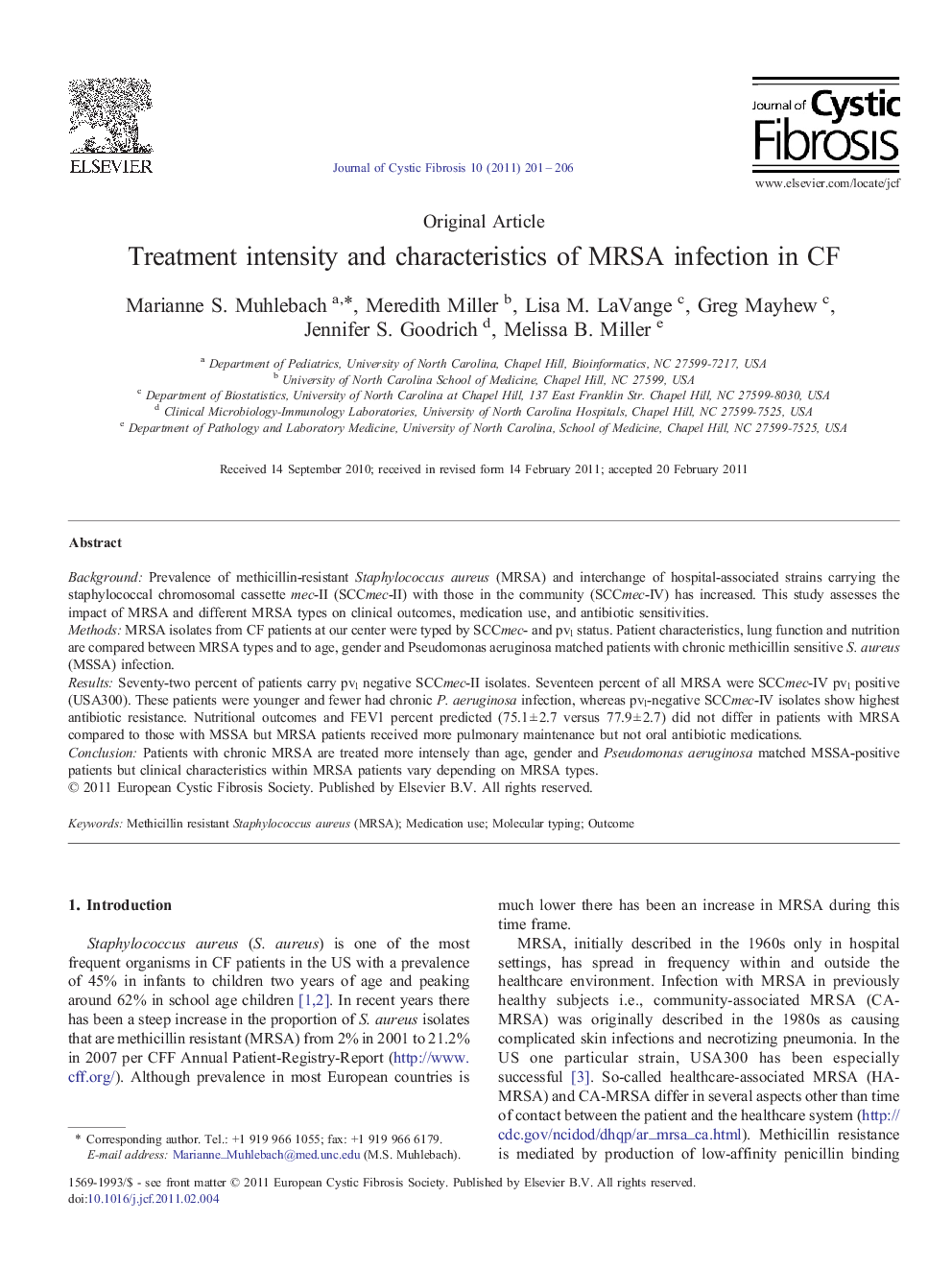| Article ID | Journal | Published Year | Pages | File Type |
|---|---|---|---|---|
| 4208633 | Journal of Cystic Fibrosis | 2011 | 6 Pages |
BackgroundPrevalence of methicillin-resistant Staphylococcus aureus (MRSA) and interchange of hospital-associated strains carrying the staphylococcal chromosomal cassette mec-II (SCCmec-II) with those in the community (SCCmec-IV) has increased. This study assesses the impact of MRSA and different MRSA types on clinical outcomes, medication use, and antibiotic sensitivities.MethodsMRSA isolates from CF patients at our center were typed by SCCmec- and pvl status. Patient characteristics, lung function and nutrition are compared between MRSA types and to age, gender and Pseudomonas aeruginosa matched patients with chronic methicillin sensitive S. aureus (MSSA) infection.ResultsSeventy-two percent of patients carry pvl negative SCCmec-II isolates. Seventeen percent of all MRSA were SCCmec-IV pvl positive (USA300). These patients were younger and fewer had chronic P. aeruginosa infection, whereas pvl-negative SCCmec-IV isolates show highest antibiotic resistance. Nutritional outcomes and FEV1 percent predicted (75.1 ± 2.7 versus 77.9 ± 2.7) did not differ in patients with MRSA compared to those with MSSA but MRSA patients received more pulmonary maintenance but not oral antibiotic medications.ConclusionPatients with chronic MRSA are treated more intensely than age, gender and Pseudomonas aeruginosa matched MSSA-positive patients but clinical characteristics within MRSA patients vary depending on MRSA types.
